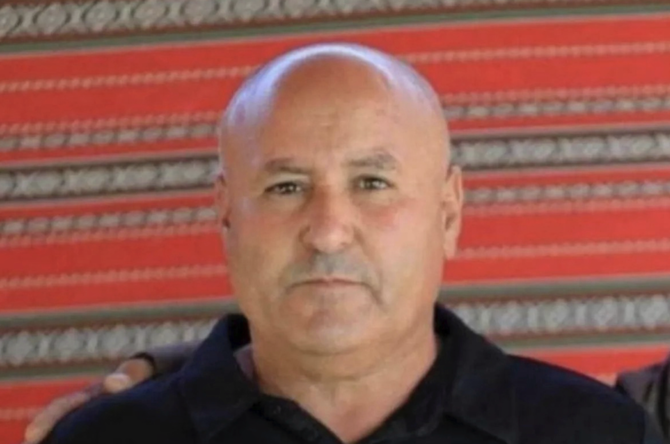BEIRUT: Lebanon’s caretaker Prime Minister Hassan Diab has ruled out the possibility of reinstating the government he led until its resignation on August 10, 2020.
In a statement issued on Wednesday, Diab said: “Defining the powers of a caretaker government and the role of the resigned Cabinet requires a constitutional interpretation, which is the exclusive right of parliament.”
Diab was, indirectly, responding to an invitation issued by Hezbollah Secretary-General Hassan Nasrallah a few days ago to reactivate the resigned government, as President Michel Aoun and Prime Minister-designate Saad Hariri remain in deadlock over the formation of a new government for the crises-stricken country.
Diab continued his statement by saying that eight months after his cabinet resigned in the aftermath of August’s devastating Beirut Port explosion, “efforts have not succeeded in forming a government that would save Lebanon from its current crisis. Things have even gone beyond logic and the government’s formation has become a national crisis, which has exacerbated the suffering of the Lebanese. Forming a new government remains a priority.”
The formation of a new government remains fraught with difficulty, however, given the vast political gulf between the two sides. Aoun is reportedly insisting that he and his allies be granted a third of cabinet portfolios, effectively handing them the power of veto over any major government decision. His demand has the indirect support of Hezbollah, which is calling for a “techno-political government,” while other parties are backing a government consisting of independent ministers with no party or bloc enjoying a ‘blocking third.’
Aoun met with the ambassadors of France and Saudi Arabia on Tuesday to try and clarify his position. The Lebanese media described those meetings as “an attempt to be granted clearance and to hold Saad Hariri responsible for the delay.” However, the Saudi ambassador’s statement from the presidential palace about respecting Lebanon’s sovereignty, not interfering in others’ affairs and committing to the Taif Agreement suggested that attempt failed.
Saudi Arabia’s Ambassador Walid bin Abdullah Bukhari tweeted on Wednesday that his visit to Aoun “came after three persistent and recurrent invitations from the presidential palace.”
Bukhari also met the Ambassadors of France, Anne Grillo; the US, Dorothy Shea; and Kuwait, Abdel-Aal Al-Qenaei on Wednesday. According to sources with knowledge of their meeting, the ambassadors expressed “discontent at the Lebanese officials’ performance regarding the governmental issue.”
Former lawmaker Fares Souaid told Arab News, “The constitution is suspended and neither Saudi Arabia nor France is controlling (Lebanon’s) internal affairs. The reason behind the constitution’s suspension is Hezbollah.”
After meeting with the Maronite Patriarch Bechara Al-Rai, former Interior Minister Nohad Machnouk said, “Lebanon has become a state whose legitimacy and policy are occupied,” adding that the only viable option at this point is “to support Al-Rai’s neutrality initiative to liberate Lebanon from Iranian political occupation.”
Pressure on officials to expedite the formation of a salvation government mounted on Wednesday as the economic commissions and Labor Union held a meeting to discuss “the disaster that is about to hit the Lebanese if a government is not formed soon.”
Civil society is also exerting pressure on merchants controlling the price of food in the country. A campaign has been launched on social media urging the Lebanese to boycott eggs and chicken for a week, after the price of a carton of eggs hit 40,000 pounds ($26.20) and a kilogram of raw chicken 30,000 pounds.
Elsewhere, Hezbollah-appointed Minister of Health for the caretaker government Hamad Hassan visited his Syrian counterpart Hassan Al-Ghobash in Damascus on Wednesday.
Hassan thanked Syrian President Bashar Assad for “the decision to provide Lebanon with 75 tons of emergency supplies of oxygen to assist patients on respirators.”
Hassan said the agreement with the Syrian ministry was “a brotherly, verbal (one) that has medical and humanitarian dimensions.”
Lebanon is currently avoiding any official dealings with the Syrian government to avoid the sanctions of the Caesar Act.

























